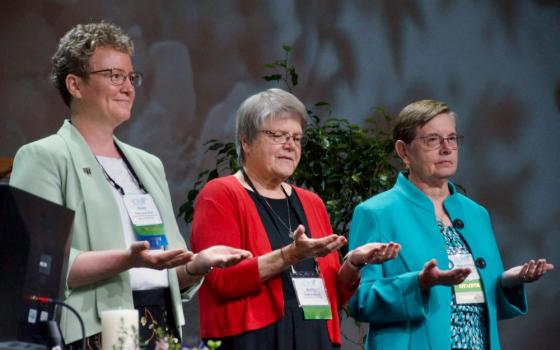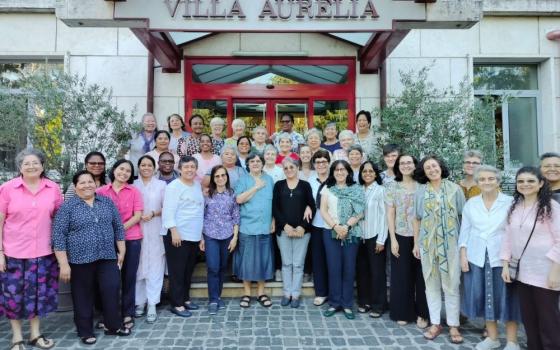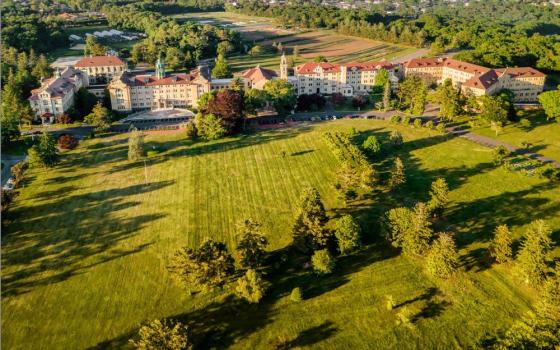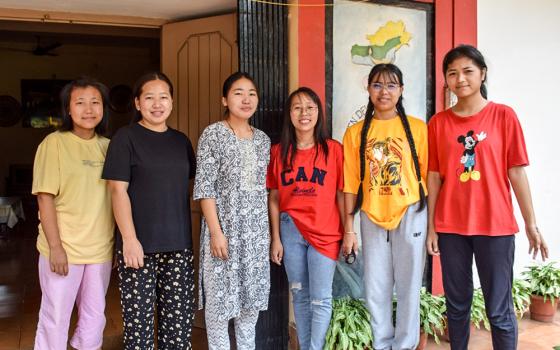Police stand outside a Missionaries of Charity home that provides shelter for pregnant unmarried women in Ranchi, India, on July 4, 2018. (CNS/Reuters)
The much-publicized case of religious conversion against the Missionaries of Charity in India's Gujarat state ended after the prosecution admitted there was no serious basis to proceed against them.
Ucanews.com reported the prosecution gave a written statement to a court in Vadodara that it would not pursue the case any further, although the first information report written by police to set the investigation in motion has yet to be quashed.
The prosecution's undertaking meant an end to the adverse publicity and harassment of the nuns from the Kolkata-based organization founded by Mother Teresa. Their Nirmala Shishu Bhavan home in Vadodara houses 48 girls, including 22 who are mentally and physically challenged.
In a related development, the court also dropped the hearing of an anticipatory bail application filed by two members of the Missionaries of Charity, who did not want to be identified, ending their nearly three-month ordeal to avoid likely arrest for a crime they never committed, ucanews.com reported.
"Indeed, it is happy news and vindication of our stand from the very beginning," said Jesuit Fr. Cedric Prakash, a rights activist based in Gujarat.
He confirmed that the local court decided to drop the legal proceedings March 3 after the government prosecutor admitted in writing that there was no serious basis to proceed against the nuns.
Bishop Stanislaus Fernandes, apostolic administrator of Baroda Diocese, thanked everyone who stood with the nuns and the Catholic Church in their difficult time.
The Vadodara police had initiated an investigation of the nuns Dec. 13, following an allegation that they had attempted to convert a girl in their shelter to Christianity.
The nuns were booked for allegedly "hurting Hindu religious sentiments" and luring young girls toward Christianity, ucanews.com reported.
However, the prosecution could not justify its action and kept seeking adjournments of court hearings on different pleas, including the legal counsel being infected with COVID-19.
"The police action was totally illegal as it was based on fabricated charges to target the nuns and other Christian groups who have been rendering yeoman service to the poor and the needy in the state," Prakash, who has been closely monitoring the case, told ucanews.com March 3.
Advertisement



